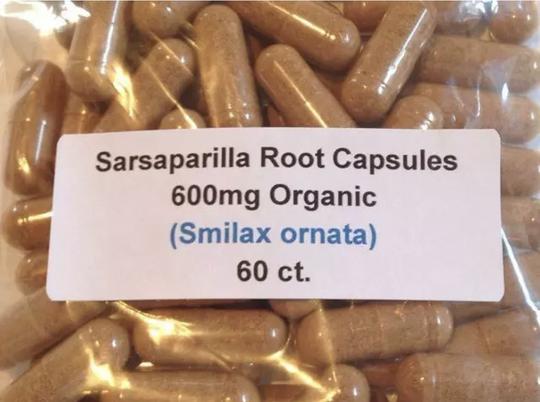Sarsaparilla is always associated with rootbeer. To give you a brief history of it, sarsaparilla originated from Central and South America. The natives use it as a medicinal plant for a thousand years. The plant grows as a woody vine with small greenish flowers and purplish-red berries. But the roots of the plant is the part that is being used the most.
Today, sarsaparilla grows in other parts of the world. Its name depends on what country the plant came from. It can be Chinese sarsaparilla, Mexican or Jamaican sarsaparilla, to name a few.
There is a piece of amazing information about this medicinal plant which is useful for the body. Read on and learn more about it.
Nutritional Facts

Researchers found out that this plant has antioxidants, anti-cancer, and anti-inflammatory properties.
These properties are due to the following nutrients present in sarsaparilla:
Saponin
It has the ability to reduce inflammation in the body. It can kill bacteria and other harmful germs and destroys cancer cells.
Plant Sterols
It plays a role in maintaining the health of the heart and gut
Flavanoid
An antioxidant that improves the immune system, and the health of the eyes and skin
Starch
The starch in sarsaparilla has a fiber content that regulates the bowel movement
Other trace minerals
Calcium, zinc, iron, and magnesium are also present in this plant which is beneficial to our body.
Health Benefits

Research and other studies have proved that sarsaparilla has the following benefits:
Tumor and Cancer Prevention
Because of its anti-inflammatory characteristics, it prevents the growth of tumors and cancer
Protects the Liver and Kidneys
It makes you urinate and it decreases liver damage because of the flavonoid content.
Balanced Hormones
The balance of hormones may be due to saponin and plant sterol. These compounds may copy the effects of reproductive and growth hormones in the body.
Easing Cough and Colds Symptoms
It liquifies the phlegm so it reduces the number of times you cough and unclogs airways when you have colds.
Relieves Skin Problems
Sarsaparilla has antifungal, antibacterial, and anti-inflammatory effects on the skin. Studies show that it relieves symptoms of Psoriasis.
Culinary Usage
Extract from the root becomes a popular flavoring of soft drinks like root beer in the 19th century
You can also drink it as a tea by boiling the dried root with water. The tea is caffeine-free.
Additionally, sarsaparilla is a food supplement, as this is available in the market in capsule form.
Side Effects and Risks
Sarsaparilla has rare to no known side effects. You may have allergic reactions though, so it is best to take it with caution.
Safety during pregnancy is still questionable, so pregnant women should omit taking it.
Summary
To cap it off, sarsaparilla root is the most common part of the plant that is used as a flavoring, tea, or a supplement. It has nutrients that benefit the whole body with no known side effects. Yet, this medicinal plant is not advisable to pregnant women. Use it with caution if you have an allergic reaction and ask advice from your doctor before taking any herbal supplements.
Try sarsaparilla root supplements and order here now!


 " class="lazyload ease-in article__featured">
" class="lazyload ease-in article__featured">